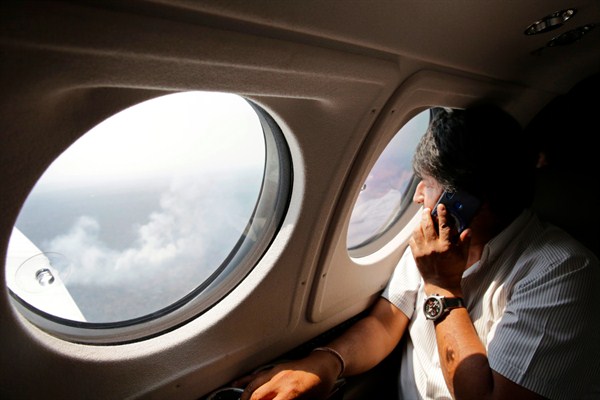Hundreds of thousands of Bolivians marched Friday to protest President Evo Morales’ handling of forest fires that had been burning out of control for weeks. A similar situation in Brazil raised international pressure on that country’s controversial far-right president, Jair Bolsonaro. Morales has so far escaped international scrutiny over the issue, even as it has begun take on more prominence in the run-up to elections on Oct. 20.
The protests in Bolivia’s largest city, Santa Cruz, followed Morales’ appearance at the United Nations General Assembly in late September, where he assured his global counterparts that his government would fulfill its international commitments for forest conservation. That statement, too, drew immediate outrage from Bolivia’s environmentalists, who described it as being at odds with the Morales administration’s actions on the ground.
Bolivia’s rate of deforestation has doubled since 2015, propelled by Morales’ presidential decrees and new laws that have hastened agricultural expansion by both smallholders and large-scale cattle and soy producers. Environmentalists blame the government for the widespread fires that have damaged over 3.5 hectares of mostly tropical dry forests in the southeastern Chiquitania region over the past several months. In reality, multiple factors are involved, including the slash-and-burn agricultural techniques practiced by the indigenous migrant peasants who make up much of Morales’ base, in addition to the expansion of large-scale agribusiness.

